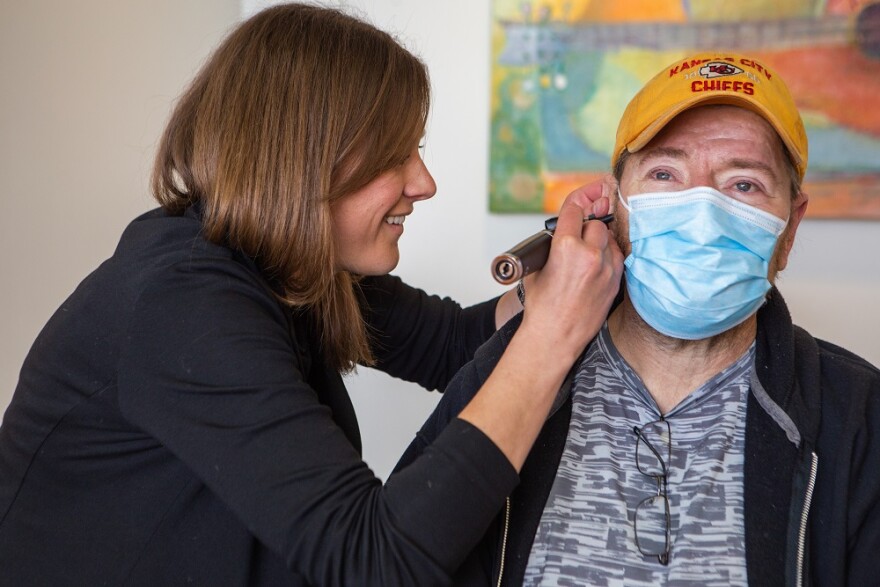Patients who are fed up with the bureaucracy of the health insurance industry are ditching the copays and high deductibles for a different way to get primary care.
One such patient is self-employed attorney Dan Hobart, who struggled to find insurance because of his pre-existing conditions. Even after Affordable Care Act went into effect, doctor visits were still too costly for him to get the care he needed.
After learning about direct primary care from a friend, Hobart signed up immediately.
"It's really like a blessing,” Hobart says. “I just wanted a doctor and couldn’t believe that I could afford one.”
In the Kansas City region, 26 direct primary care, or DPC, clinics have formed the Midwest Direct Primary Care Alliance. It consists of doctors who are opting to leave the traditional fee-for-service practice for a private practice offering patients membership-based healthcare services.
Hobart said he hadn’t had regular doctor since he was a child until signing up with Allison Edwards, a doctor at Kansas City Direct Primary Care, last fall.
Edwards' office charges $65 a month for the average adult; a family plan for $140 a month includes unlimited routine visits, phone and email availability directly with her.
Now, Hobart says, he enjoys direct access and the ability to have a personal relationship with his doctor.
"I can email her directly and if there's a big issue she can address that quickly," Hobart says.
The Alliance is still "playing the insurance game," Edwards says. But the Alliance has the ability to negotiate prices with independent companies that offer services such as labs and radiology at wholesale prices.
"We’re using it to democratize things," she says of the group's collective power.
Through the DPC independent partnerships, a patient would pay approximately $40 for a chest X-ray, $10 for a diabetes screening and $9 for a thyroid check of the thyroid, with no hidden fees, copay or insurance.

Insurance was meant to be a financial protection product, Edwards explains, but the healthcare industry has strayed from that concept and uses it for all services, even though some can be paid out of pocket.
Patients aren’t the only ones rejecting the industry's red tape.
After paying off her medical-school loans, Jennifer Smith was ready to quit practicing medicine because she had grown so fed up with insurance companies who prioritized patient volume over patient care.
On average, she says, she was only able to spend seven minutes on each patient. This wasn’t enough time to address their needs.
“I just felt like this wasn’t appropriate care and I wanted to do something that was going to allow me to spend that time with my patients,” Smith says.
A colleague told her about DPC and it wasn’t long before she opened Accomplished Health and Wellness in Lawrence. With the freedom to practice medicine in a more personalized way that best serves her patients' needs, Smith says she is happier now that she's no longer regulated by the pressure of the insurance industry.
Both Smith and Edwards say they recommend that their patients have some form of insurance to cover more costly incidents such as cancer or other critical-care needs. But their practices do not accept insurance.
Edwards, too, says she's "1,000 times happier" since transitioning away from the bureaucracy of the insurance agencies, even though she's making less money.
"It doesn’t matter how much you pay somebody for a job that's ultimately soul-sucking and meaningless," Edwards says, “which is what primary care is becoming with its checking boxes and all that."
Dr. Allison Edwards, Dr. Jennifer Smith and Dan Hobart spoke with Steve Kraske on a recent episode of KCUR's Up to Date. Listen to the entire conversation here.
Elizabeth Ruiz is an intern for KCUR's Up To Date. Contact her at elizabeth@kcur.org.




